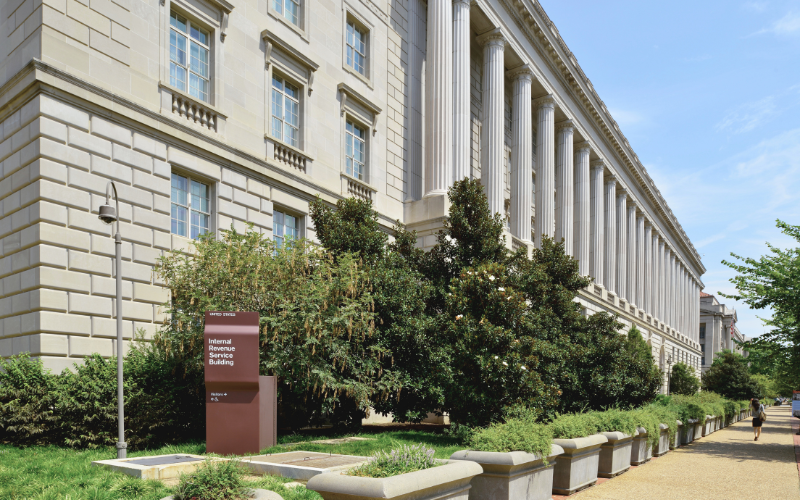OFAC Penalties and Fines and How to Avoid Them
Some say OFAC is one of the best-kept secrets of the US government - but it’s one of the riskiest things to ignore as an Accounts Payable department. The US Treasury’s Office of Foreign Assets Control (OFAC) maintains a list of organizations and individuals you are not allowed to do business with for reasons of national security. Checking your vendors against this list should be integrated into your AP workflow.
If you ignore this requirement, the penalties can be astronomical – and even if you do comply, you may still incur fines.
In this blog, we’ll go over OFAC fines and penalties and what you need to know because according to the US Treasury, “all U.S. persons must comply with OFAC regulations.”
What are the Penalties for Non-Compliance with OFAC Sanctions?
OFAC penalties can be far more excessive than fines imposed by the IRS for things like incorrect 1099 filings. OFAC has the authority to impose fines and penalties for a wide range of violations, including engaging in transactions with sanctioned countries or individuals, exporting prohibited items to embargoed countries, and failing to comply with regulations.
These fines can be as much as $250,000 per violation - but it doesn’t end there. If your company engages with an entity on the sanctions list and does not disclose the mistake, OFAC will fine you the statutory maximum. We heard of a company that settled in April 2022 for $6.1 million in penalties.
Depending on the facts and circumstances of the case, OFAC may also impose penalties for failure to file required reports or for filing false or misleading reports.
It’s important to stay informed about OFAC regulations and deadlines and to be proactive in ensuring compliance with those regulations. This includes implementing a vendor compliance process, obtaining necessary licenses, and reporting potential violations in a timely manner.
Make sure you understand the scope of OFAC’s regulations and general licenses before dealing with any sanctioned parties. BIOMIN, a Kansas-based animal food company, thought they couldn’t sell animal food products from the United States to Cuba but could sell non-US products to Cuba from its foreign subsidiaries. They paid a $258,000 penalty.
OFAC Guidelines and Deadlines
To avoid OFAC fines and penalties, it’s important to understand and comply with OFAC regulations. Here are some ways to help you stay compliant:
Keep up to date with the OFAC's sanctions programs and changes. This will help you identify individuals, organizations, and countries that are subject to OFAC sanctions.
Before engaging in any international trade or any financial transactions add OFAC screening to your vendor onboarding process.
If you plan to engage in transactions or conduct business with countries or individuals that are subject to OFAC sanctions, you may be required to obtain a license from OFAC. Be sure to submit any necessary license applications well in advance of any planned transactions to allow sufficient time for OFAC to review and approve your application.
If you suspect that your organization may have violated OFAC regulations, you’re required to report the potential violation to OFAC within a reasonable time period, but no later than 30 days after becoming aware of the violation.
Implement a vendor validation process that includes regular training for employees, conduct internal audits and reviews, and purchase vendor validation software to automate this process - these steps can help ensure your business is compliant.
OFAC encourages voluntary self-disclosure of violations and cooperation during investigations. They will take into account a company's compliance program as a mitigating factor when determining penalties.
The filing deadline for OFAC self-disclosure of a potential violation of any sanctions regulation is 30 days after becoming aware of the violation. Note that voluntary self-disclosure of a violation can be made at any time, and is strongly encouraged by OFAC as it can mitigate the penalties and fines that may be imposed on your business.
Make sure your AP team:
Runs OFAC checks on all new vendors before onboarding them.
Uses a reliable OFAC screening service or software, such as the OFAC's SDN list, to check whether a vendor is on the OFAC list.
Keeps a record of all OFAC screening activities, including any matches that are found and how they were resolved.
Reviews and updates your OFAC screening procedures regularly to ensure that they’re effective and compliant with all relevant laws and regulations.
Mekorma Offers OFAC Screening Software for Acumatica
With Mekorma’s Vendor Validation tools, your AP team can rest easy knowing that OFAC screening (and TIN Matching!) is automated and integrated right within your ERP system.
Mekorma Vendor Validation will:
Screen Vendors
Search the OFAC list for a match when a new vendor is added to your ERP, and before payments are processed for existing vendors.
Hold Payments
If a vendor is found on the OFAC list, the system can be configured to hold payments to that vendor.
Save Screening Audit Records
Prove your staff took reasonable action to avoid processing payments for OFAC listed entities.
Additional Resources:
OFAC sanctions list, https://sanctionssearch.ofac.treas.gov/
Office of Foreign Assets Control, https://sanctionssearch.ofac.treas.gov/


